- Home
- Rick Mofina
Tom Reed Thriller Series Page 2
Tom Reed Thriller Series Read online
Page 2
“Yes, I knew Tanita.”
“I understand she attended your Sunday school day care?”
“Once or twice. She was not a regular. What is this about?”
“Mr. Wallace, may I come in? I have some questions, important questions, I would like to ask you.”
Reed caught it. A twitch in Wallace’s eyelid, an unconscious reaction so slight he almost missed it.
“What questions?”
“May I come inside?”
“What questions? What is this about?”
Wallace’s hand tightened his grip on the door frame. Reed was losing him; this might be his only chance. “Mr. Wallace, do you have a record for child molestation in Virginia?”
“What? A record?”
“I have it confirmed, sir.”
Wallace swallowed, licking his lips. “You have it confirmed?”
“Yes, just now. I would like to talk to you about some other information I have. It is very serious.”
“Why? No. Please. That was long ago. Please, I have a family, a job. You must not print anything. Please, I don’t know what you’re driving at coming here with this.”
“I’ve been told your fingerprints have been found on items linked to Tanita’s murder.”
“What? I can’t believe that!”
What little color Wallace had melted from his face. He was wan, his eyes revealing the truth. He was guilty. Guilty of something. Reed knew it. He was standing inches from a child-killer.
Wasn’t he?
At that moment, Wallace’s daughter appeared, clinging to her father’s leg, a tiny leave-my-daddy-alone scowl aimed at Reed. Red jam was smeared on her chin, reminding Reed of blood.
“I had nothing to do with what you’re suggesting.”
Wallace slammed the door.
Reed cleared his throat and went to the next clipping:
SUNDAY SCOOL TEACHER COMMITS SUICIDE...“HE WAS INNOCENT”: WIDOW...REPORTER BLAMED FOR TEACHER’S DEATH...WIDOW SUES S.F. STAR...TANITA’S KILLER “IS OUT THERE”: POLICE...
Reed removed his glasses, burying his face in his hands.
The day after she buried her husband, Rona Wallace held a press conference. It was on the same doorstep where Reed had questioned Franklin Wallace moments before he locked himself in his daughter’s bedroom and fired both barrels of a shotgun into his mouth.
“My husband was a decent man, and a loving father,” Rona Wallace read from a prepared statement. “He took successful counseling for his problems, which occurred more than a decade ago when he was clinically depressed over the death of his mother. The San Francisco Police and the FBI have told me today, to my face, that my husband was initially checked and quietly cleared as a possible suspect in the death of Tanita Marie Donner. He knew and loved that little girl.” She sniffed.
“I attribute his tragic death to the allegations raised in the abhorrent and false reporting of The San Francisco Star and have begun civil action. Thank you.”
Rona Wallace took no questions. When she finished, she asked if Tom Reed was present. “Right here.” Reed raised his hand.
Cameras followed her as she walked to him, her reddened eyes finding his. Without warning, she slapped his face. “You know what you are and you know what you did,” she said, then walked away.
Reed was stunned.
Reporters pelted him with questions. He was speechless. The TV gang loved seeing him get his comeuppance. The networks picked it up. Public criticism from police made him a pariah. The incident ignited editorials and columns across the country about press ethics. Reed couldn’t sleep without drinking--he doubted everything in his life. He argued with Ann, screamed at Zach, and was once on the brink of hitting him, squeezing his arm until he yelped in sheer terror.
“Wake up, Reed. I brought your medicine.”
A steaming cup of coffee was set before him, the aroma mingling with the scent of Obsession. “Anything shaking, Tommy?” Molly Wilson settled in at her cubicle, next to his, her bracelets clinking.
“A drunk knifed by a whore.” He sipped the coffee. “Thanks.”
Wilson was hired four years ago from a small Texas daily. She had a master’s degree in English literature. A relentless digger, she was a strong writer. Her brunette hair was cut like Cleopatra’s, she had perfect teeth, and always smelled good.
“Why are you here, Wilson? It’s your day off.”
She switched on her terminal, flipped open a notebook, and began typing. “Got to finish a feature for Lana. She moved up my deadline.”
Reed grunted.
“Thanks for asking, Tom. It’s about men who kill, and the women who love them. Hey, you’re being naughty. Can’t leave that Donner story alone.”
Reed said nothing.
“Why do you keep doing this to yourself, Tom?”
“Do what?”
“Forget the story. The police fried you because they screwed up and needed a scapegoat. Benson suspended you because he needed a scapegoat too. It was only a week. Everybody knows he put the entire thing on your shoulders. It was a year ago. Forget it and move on.”
“I can’t.”
The muted clatter of the Star’s police scanners flared, then faded. Reed and Wilson glanced across the newsroom at the summer intern monitoring transmissions.
“Tom, it wasn’t your fault.”
“I pushed hard for it.”
“Yes, but if that idiot in homicide had explained how Wallace’s prints were on the evidence, like you begged him, you would have backed off. You wanted more time on the Sunday School teacher stuff, but Benson was horny for the story. They pushed hard, too. We will never know the truth, Tom.”
Wilson’s eyes were sympathetic. She resumed typing. Reed went back to the clippings.
“Why do you have the Donner file, anyway?”
“Anniversary’s coming up. I’m going to pitch a feature.”
Wilson rolled her eyes. “You really are nuts. This rag is not going to let you do that. They’ll pass it to a G.A., or some dink in Lifestyles. Besides, isn’t Tanita’s mother in hiding?”
“I have an idea, but--”
The scanners grew louder.
They turned to the small office tucked way in the far corner of the newsroom. The “torture chamber.” A glass-walled room with twenty-four scanners monitoring hundreds of emergency frequencies in the Bay Area. The incessant noise inspired the room’s name. Experienced listeners kept the volume low, but when a major incident broke, the sound increased.
“Something’s happening,” Wilson said.
Simon Green, a summer intern, was monitoring the radios. His face was taut when he stood, jotted a note, then yelled at Al: “Child abduction off BART! Balboa Park! They’re stopping the trains!”
Booth grimaced at the newsroom. No one on, except Reed.
“Are you clear?”
Reed nodded.
“Take it. Wilson, stick around, you might get overtime.”
Across the newsroom, the weekend photo editor radioed a photographer roaming the city to rush to the Balboa Park BART station.
Reed slipped on his jacket, grabbed one of the Star’s cell phones. “I’ve got number three, call me with updates, Molly.”
“This is eerie. Balboa Park.”
Tanita Marie Donner was abducted from the Section 8 housing complex where her teenage welfare mother lived. In Balboa Park.
THREE
Sydowski and his father had good seats at the Coliseum. Thirty rows up from first. But the game lacked zeal. Entering the eighth, with the A’s up by seven over the Yankees, was not exciting baseball.
Sydowski was stiff and hungry.
“Hey, old man,” he said in Polish. “I’m going to get something to eat. You want anything?”
“Sure, sure. Popcorn,” his father said.
Sydowski patted his father’s knee and headed for the concession stand. Sydowski had not wanted to come to the game. He accepted tickets because his boss insisted. Sydowski’s old m
an loved seeing the A’s at the Coliseum, but would never ask to be taken because he figured the job kept his son busy.
Standing in line, Sydowski reminisced about the old days. Whenever Boston played the A’s, he would drive across the Bay Bridge to Oakland to pay homage to Carl Michael Yastrzemski, a three-time American league batting champion. Yaz took his third title by posting .301, in an era when pitchers destroyed batting averages.
That was perseverance.
That was 1968. The year Oakland got the A’s and the San Francisco Police Department got Wladyslaw Sydowski.
Had it been that long ago?
“You know you can take your pension any time, Walt,” his boss, Lieutenant Leo Gonzales, often reminded him.
Sydowski couldn’t. Not yet. What would he do?
His wife, Basha, had died of Parkinson’s six years ago. The girls were grown, had their own children, and had moved away. He had John, his eighty-seven-year-old father, to look after. His old man was something. A Polish potato farmer and barber, he had kept his family alive in a work camp during the war by cutting hair for Nazi officers. Sydowski’s old man taught him how to listen, how to read people. Now John lived happily alone at Sea Breeze Villas in Pacifica, tending a vegetable garden, following the A’s. He refused to move in with Sydowski, who lived by himself in the Parkside house where he and his wife had raised their daughters and where he now raised champion canaries.
“Sir? That’s four dollars.”
Sydowski smiled, showing two gold-crowned teeth as he dug out some cash. The teenage girl smiled back. At six-foot-three, with a solid two-hundred-pound frame, dark complexion, and wavy salt-and-pepper hair, Sydowski was a handsome man.
He knew the hotdog would take a toll on his chronic heartburn, but what the hell? He smothered it with mustard, relish and onions as the old questions surfaced. What would he do if he retired? He was a cop. A homicide inspector. It was his life. To some, he was one of the SFPD’s best; to others he was “the arrogant Polack.” While he was traditionally assigned to break in new detectives, he maintained the detail’s highest clearance rate. Senior clicks told rookies Inspector Sydowski knew killers because he was one.
It was near the end of the war, Sydowski was what? Eight or nine? His family was working on a farm in southeastern Germany when he came up on a drunken Nazi soldier raping his twelve-year-old sister behind a barn. Sydowski grabbed the soldier’s Luger and held it to the sweating man’s temple, forcing him to kneel and beg for his life. Then he pulled the trigger, scattering master race brain matter against the pigsty.
That was another life. Sydowski had erased the memory of it, or thought he had. Somehow the rage he felt then, rage he thought he would never again experience, had returned when he was given the case of a two-year-old girl. The worst part of the job was always the murders of babies. Looking down at their tiny bodies, knowing they never had a chance, that this world had failed them, and it was his job to avenge their deaths. Remembering how he would go home brokenhearted, kiss Basha and the girls, and tell them it was another routine day.
Over the years he had managed to remain detached from his cases, enough so that he could do the job. Although he won most, he accepted losing some. He had no choice. He couldn’t solve them all. But the abduction and murder of Tanita Donner was different. It was a year ago. He was the primary and he couldn’t close it. At one stage, he felt he was close. Now he had nothing. The thing refused to be solved and it ate him up. Leo had suggested he let fresh eyes go over it, that he concentrate on other files for a time. That didn’t last. He had given a piece of his soul to the Donner case. How could he forget about that baby for one second?
It was raining when he arrived in Golden Gate Park with a rookie and looked into the bag. He remembered the familiar foul smell, the flies and maggots, how she was so white, the gash across her tiny neck, and how her eyes, those beautiful little eyes, were open and staring at him. Into him. Feeling something break inside, making him ache at that very moment to hold her to his chest, in front of all the cops, reporters, and rubberneckers, all standing there.
Sydowski had crossed the emotional line with Tanita’s file. At the morgue, seeing her doll-sized corpse, then taking Tanita’s teenage welfare mother and grandfather from their Balboa apartment to identify her. How he caught the mother after she collapsed upon seeing her baby, hearing a groan from the grandfather, who covered his face with his hands. He was dying of cancer and had already lost his legs. Remembering how his wheelchair was held together by coat hangers, how the mother let her crumpled snapshot of Tanita fall to the floor and started screaming, and how Sydowski looked to the ceiling.
He knew he would never give up on this one, never let it go. He had touched Tanita’s coffin at her funeral, vowing to find her killer.
“Here you go, Pop.” Sydowski handed a bag of popcorn to his old man, then took a couple of bites from his dog and tried getting back into the game. But he’d lost his concentration.
At the outset, the department had put half the detail on Donner. It was a green light. The FBI assigned a couple of humps to inflict its jurisdiction. The senior agent was Merle Rust, a soft-spoken, twenty-year fed with a three-inch scar on his chin from a bullet that grazed him during a shootout with The Order near Seattle in 1984. Rust was as fond of chewing tobacco as he was of his young partner, Special Agent Lonnie Ditmire, a by-the-book grad straight from the academy cookie cutter. He had an all-American smile and believed all municipal police were bush.
Despite the inevitable friction, everyone worked overtime. It was always that way with child murders. They hauled in suspects, Quantico kicked out a profile. They flashed information on the big screen of Candlestick Park and offered a reward. As weeks, then months, passed, two network TV crime shows featured the case. The commission turned up the heat for an arrest. Posters sprouted in the Bay Area. But they had squat, until months into the file when something broke.
A beat cop, searching for tossed drugs in the playground in Dolores Park, found Tanita’s diaper and the weather-worn Polaroids of two men holding her. The items were hidden in a bag among some shrubs. True to the profile: Two people were involved in the child’s abduction and murder. One of the pictured men was Franklin Wallace, a Sunday school teacher who lived near Tanita’s housing project. Latents on the diaper matched his. They ran them and discovered Wallace had been convicted ten years ago of molesting little girls in Virginia. Nothing was known about the second suspect, a tattooed man who was masked in the snapshots.
They kept the break secret, returned the items to the shrubs and were about to surveil the site with the FBI when Sydowski got a call from Tom Reed at the Star, a reporter he knew and respected. Reed was on to the break in the case and wanted information for a story. Sydowski cursed to himself over what he suspected was a dangerous leak, jeopardizing the investigation.
“What do you know, Reed?”
“Franklin Wallace is your boy. His prints are on her diaper and you’ve got a picture of him with her. He’s a Sunday school teacher in the projects with priors. A diddler from Virginia. Is that right?”
Reed was on the money. Sydowski had to be careful.
“Where did you get this?”
“A call out of the blue this morning.”
“Who?”
“Get serious, Walt, you know I’d never reveal a source.”
Sydowski said nothing.
Reed thought it over quickly, and lowering his voice, said, “If I helped you with information on the tip, do I get a jump on the story, Walt?”
“No deals.”
Reed sighed. Sydowski heard a pen tapping, heard Reed thinking.
“I don’t know who called. It was a man. Lasted a few seconds. Has to be somebody sick of the commission’s shrieking, a cop likely.”
“You tape it?”
“No, it was too quick. So, am I on the right track, Walt?”
“No comment. And I wouldn’t write a word just yet.”
“Come on.”
“We never had this conversation.”
There was something triumphant in Reed’s silence.
“I’ll take that as confirmation.”
“Take it any way you like, I never spoke to you.”
The leak detonated a storm at the D.A.’s office and at Golden Gate Avenue. Reed had called the D.A.’s office, seeking official confirmation for his tip. He got nothing.
Wallace had not yet been formally questioned. Reed was forcing their hand. Rust, Ditmire, and Rich Long, an assistant district attorney, descended on the Hall of Justice and debated the merits of picking up Wallace without yet having built a case against him or his mystery partner. Sydowski wanted Wallace grabbed right away. The agents wanted Wallace under surveillance so he could lead them to his partner. And could they stop Reed’s story? More importantly, Ditmire interjected directly to Sydowski, how many other reporters knew?
Offended at the implication that he was the leak, Sydowski stood to confront his accuser, his chair scraping across the floor.
“Take it easy, Walt,” Rust said.
At that moment, they received word that Wallace was dead. Shot himself in the head after Reed showed up on his doorstep, asking about Tanita Marie Donner and his record in Virginia. Wallace left a note proclaiming his innocence. Nothing in his house linked him to Tanita’s murder.
Long snapped his pencil in two, closed his briefcase, and left with Rust and Ditmire in tow, cursing Sydowski.
The next day, Reed’s story identifying Wallace as the chief suspect in Tanita Marie Donner’s murder ran on the front page of the Star. Thankfully, Reed didn’t know about the second suspect. The John Doe with the tattoos. The D.A. and the feds decided the case might be salvaged if they downplayed Reed’s article by saying Wallace was never a suspect, that he was checked because he knew the victim and because of his old record. It was routine and he was cleared long ago, they said. The San Francisco Star was writing fiction, again. Sydowski loathed this tenuous approach, but it was all they had.
But it didn’t matter. The investigation crumbled. Then it got worse. Wallace’s widow sued the paper, then slapped Reed’s face in front of all the camera during a news conference. Reed was demoted, or something like that. Sydowski grilled him half a dozen times about details of the call, then they lost touch.

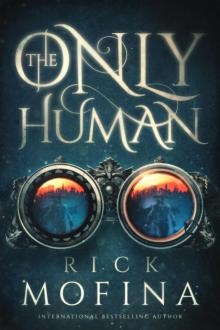 The Only Human
The Only Human Tom Reed Thriller Series
Tom Reed Thriller Series![[Tom Reed and Walt Sydowski 04.0] No Way Back Read online](http://i1.bookreadfree.com/05/tom_reed_and_walt_sydowski_04_0_no_way_back_preview.jpg) [Tom Reed and Walt Sydowski 04.0] No Way Back
[Tom Reed and Walt Sydowski 04.0] No Way Back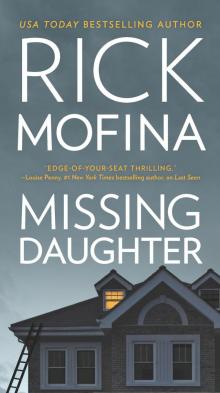 Missing Daughter
Missing Daughter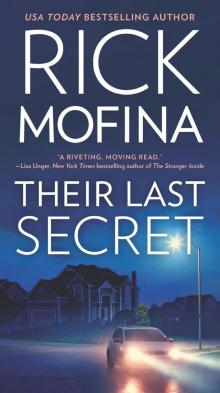 Their Last Secret
Their Last Secret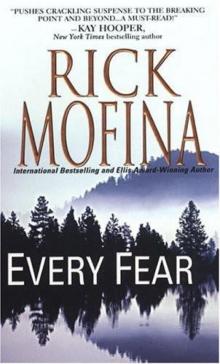 Jason Wade - 02 - Every Fear
Jason Wade - 02 - Every Fear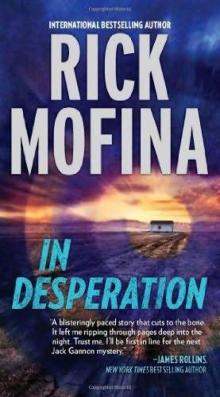 In Desperation
In Desperation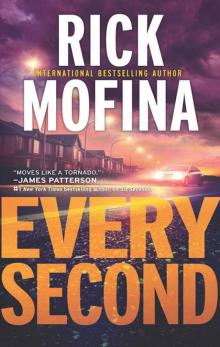 Every Second
Every Second Full Tilt
Full Tilt Search for Her
Search for Her The Last Pursuit
The Last Pursuit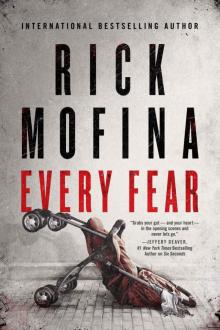 Every Fear
Every Fear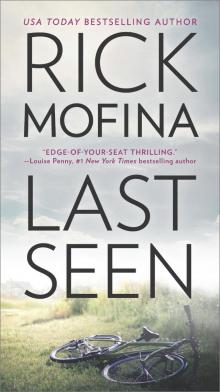 Last Seen
Last Seen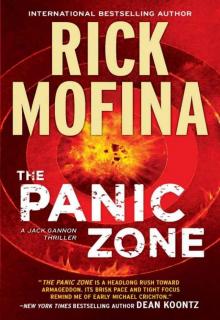 The Panic Zone
The Panic Zone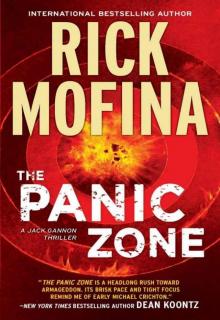 The Panic Zone jg-2
The Panic Zone jg-2 Free Fall
Free Fall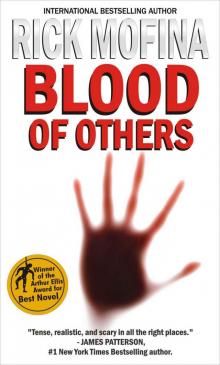 Blood of Others
Blood of Others![[Jason Wade 02.0] Every Fear Read online](http://i1.bookreadfree.com/i1/03/31/jason_wade_02_0_every_fear_preview.jpg) [Jason Wade 02.0] Every Fear
[Jason Wade 02.0] Every Fear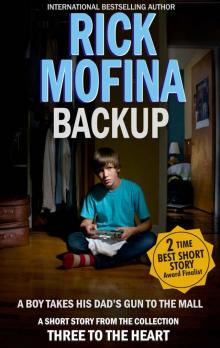 Backup
Backup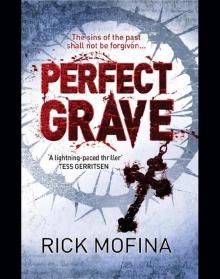 Perfect Grave
Perfect Grave Into the Dark
Into the Dark Whirlwind
Whirlwind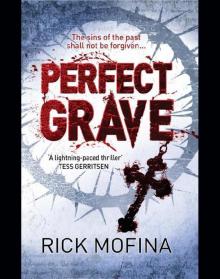 Perfect Grave jw-3
Perfect Grave jw-3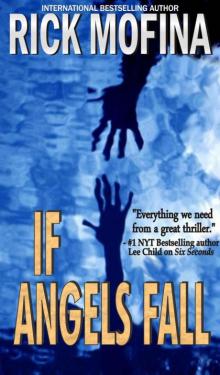 If Angels Fall (tom reed and walt sydowski)
If Angels Fall (tom reed and walt sydowski)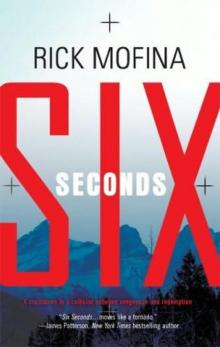 Six Seconds
Six Seconds If Angels Fall
If Angels Fall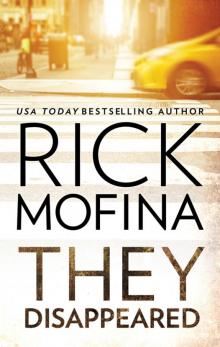 They Disappeared
They Disappeared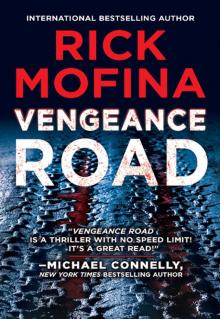 Vengeance Road
Vengeance Road Before Sunrise
Before Sunrise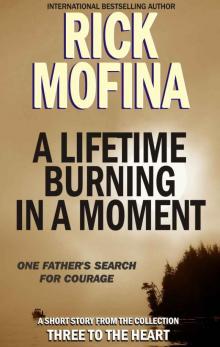 A Lifetime Burning in a Moment
A Lifetime Burning in a Moment Blood Red Rings (Dangerous Women & Desperate Men)
Blood Red Rings (Dangerous Women & Desperate Men) As Long As We Both Shall Live (Dangerous Women & Desperate Men)
As Long As We Both Shall Live (Dangerous Women & Desperate Men)![[Tom Reed and Walt Sydowski 01.0] If Angels Fall Read online](http://i1.bookreadfree.com/i2/04/12/tom_reed_and_walt_sydowski_01_0_if_angels_fall_preview.jpg) [Tom Reed and Walt Sydowski 01.0] If Angels Fall
[Tom Reed and Walt Sydowski 01.0] If Angels Fall Cold Fear
Cold Fear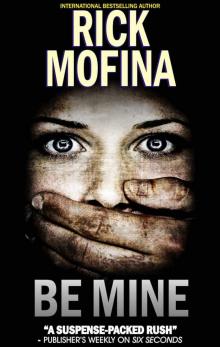 Be Mine
Be Mine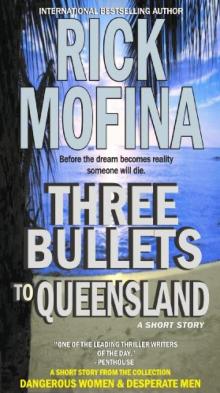 Three Bullets To Queensland
Three Bullets To Queensland